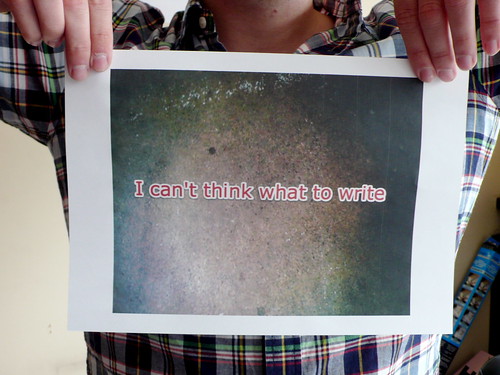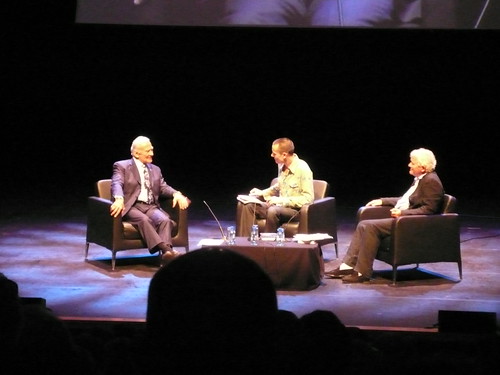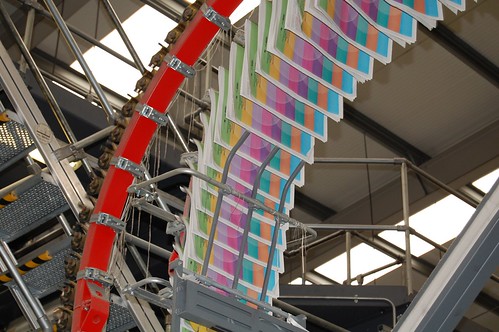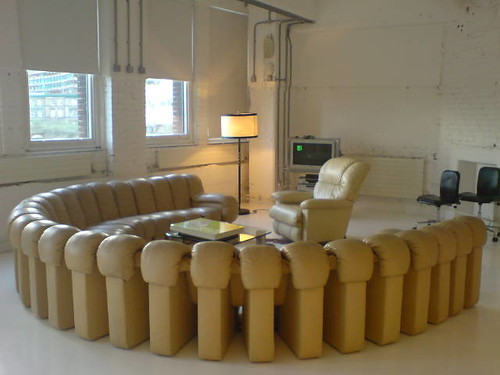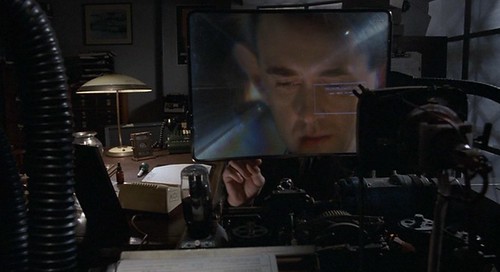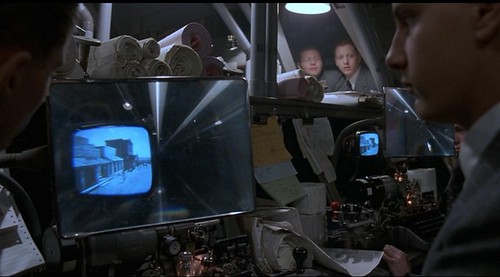The Final 50 Interesting tickets will be on sale at 11am on Friday the 17th of July.
Russell Davies
As disappointed as you are
About | Feed | Archive | Findings | This blog by email
« June 2009 | Main | August 2009 »
really enjoyed it
We went to see Buzz Aldrin at the South Bank on Saturday. Science heroes are to be cherished. It was good, not because he was heroic but because he was flawed and enthusiastic.
He talked eloquently and honestly about how hard it is to answer the question every one wants to ask moon walkers. It was along the lines of this answer he gave to The Guardian a few days earlier.
"He has always had problems putting into words the grandeur of that moment 40 years ago. "People want to know what it felt like," he says. "They want us in a few words to generate the enthusiasm that the world had as they contemplated what we were about to do. Well, what it felt like is something that we trained for. We were trying to treat it as calmly as we could and perform to the best of our ability. We tried to repress feelings of exuberance, of disappointment, and be proud and responsible people accomplishing the task that was given to us. That sounds kind of boring. Except that what we did was kind of earth-shaking."
His interviewer, Andrew Smith, mentioned another strategy. Apparently Pete Conrad always tried to get away from that question as quickly as possible:
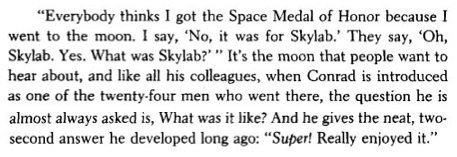
(From A Man On The Moon)
Massive understatement always wins.
July 08, 2009 | Permalink | TrackBack (0)
office art
Microsoft Excel v. Mario Paint Composer from patricksyms on Vimeo.
Patrick's made an animation out of 707 Excel spreadsheets. Perverse genius.
July 08, 2009 | Permalink | TrackBack (0)
jon cherry
Blue Watch Flick Through from Jonathan Cherry on Vimeo.
Some people are bound to succeed. Certainly they're talented, but they're also energetic. They do good things, but then they also tell people about them, and get others involved. Such a person is Jon Cherry, who's done some splendid photography of fire fighters, but didn't stop there, and persuaded a bunch of people (including me) to contribute some text. Full marks to him, it's a marvellous thing.
July 06, 2009 | Permalink | TrackBack (0)
intern/placement at mother?
I don't really do this any more, but Sarah's a good egg, Mother are a good thing and they owe me money. So this might be extra incentive for them to pay me.
So they asked me to stick this up.
Strategic + cultural insight internship at mother. 2-month placement to begin asap.
Digital and research skills required.
Please send a CV + short cover letter to:
[email protected]
Don't contact me. Contact them.
July 03, 2009 | Permalink | TrackBack (0)
prepared screens
Lift with Fing 09: Timo Arnall: "Making Things Visible" from Lift Conference on Vimeo.
Timo ends this splendid talk from Lift by talking about trying to get to a future less full of 'glowing rectangles'. Which made me think of a couple of things.
I went to see Hauschka a few weeks back who did all sorts of wonderful things with a prepared piano. I'd always thought of prepared piano as a Cage-y thing, more intellectual than listenable, but Herr Bertelmann made it playful and pleasant. Adding simple, everyday things to the piano gave it loads of new textures and tones, and gave it a sort of clustered variety, so adjacent strings/keys produced quite different results. The musical 'code' (as expressed through his fingers) was filtered through a lumpy unpredictable physicality.
And for some reason it made me wonder if anyone had ever done interesting things with Prepared Screens. Whether taking the standard rectangular monitor and adding lenses, mirrors, filters, glasses, cellophane, magnifiers etc and then designing something for that prepared screen (or, even, not) might help overcome the 'bored with screens' problem. Not necessarily for steampunk affect, but to do the same thing to a screen as Hauschka does to a piano - reveal new, unexpected, unpredictable possibilities. Imagine designing something for a screen knowing that there's a big magnifying bit in the upper left hand corner. Something that alters pixels like a prepared piano alters the strings. Not through altering the code, through altering the screen.
So I started looking for prepared screens online, thinking they had to be a discarded cliche of Interaction Design shows by now, but I haven't found many examples. I'm probably looking for the wrong thing, in the wrong places.
I also imagined I'd seen them in lots of films but could only really remember the screens from Brazil. Which, while wonderful, aren't quite what I was imagining. In my head I'm thinking of something prettier and more distorting. I'll keep looking.
Anyway.
July 03, 2009 | Permalink | TrackBack (0)
around this time last year
Courtesy of Photojojo's Photo Time Capsule which is a tremendous idea, reminding you of your own life.
July 02, 2009 | Permalink | TrackBack (0)
100 hours
Matt Webb said a bunch of insightful and exciting stuff at Reboot. The best bit was his challenge about 100 hours. And I'm going to quote him about that at length, because it's enormously well put, but to really get the most out of it you should go and read his whole presentation and get the context.
Here's Matt:
"Look. Every time a person takes into their own hands the tools of production, it’s like they have eaten a macroscope. They see and feel the world in context. They are able to not just consume, but to produce, to invent culture...
...So I say our decisions about culture at large, about the question of how to spend our 100 million hours, I say these are rooted in personal ability to wield the tools of production. And as we said, 100 hours practice would get you a really long way.
Here’s my challenge. Right now, put aside 100 hours over this summer. Do it right now, in your head. Put that time aside. 100 hours. 8 hours a week for the next 12 weeks. One hour a day, or one working day a week. It’s one summer out of your entire life, it’s nothing. Okay, you’ve got that 100 hours?
Now for the next two days, go to talks and start conversations with people you don’t know, and choose what to spend your 100 hours on.
I guarantee that everyone in this room can produce something or has some special skill, and maybe they’re not even aware of it.
Ask them what theirs is, find out, because you’ll get ideas about what to learn yourself, and decide what to spend your 100 hours on. Do that for me.
Because when you contribute, when you participate in culture, when you’re no longer solving problems, but inventing culture itself, that is when life starts getting interesting."
Personally, I'm not sure what to do with my 100 hours. Not yet. But I love the way Matt's taken the '10,000 hours to develop expertise' idea and reframed/refocused it as something you can do something about, not just observe. V. good.
And surely someone, even now, someone must be building some sort of 100hours.com thing. Surely.
July 01, 2009 | Permalink | TrackBack (0)

